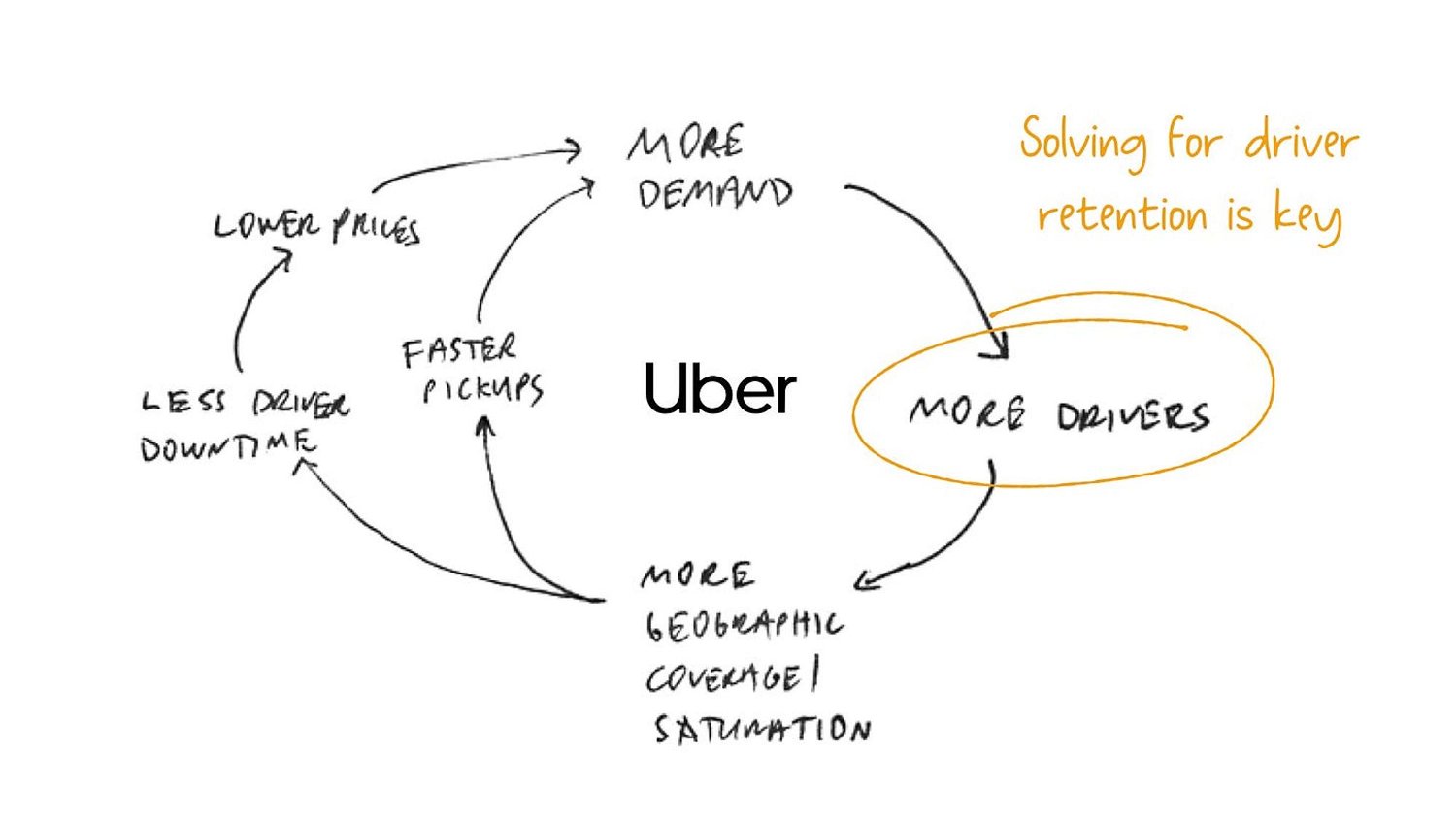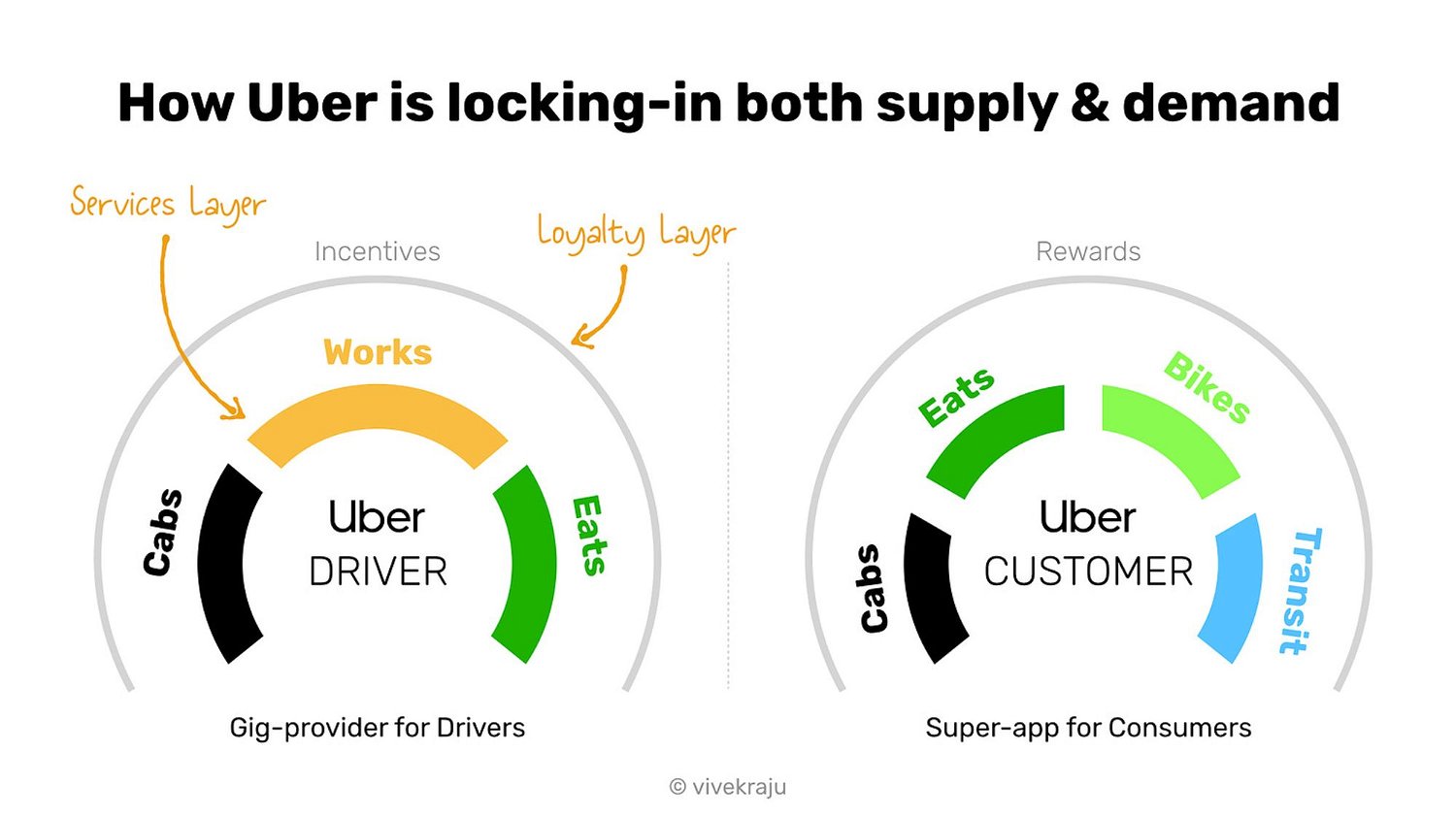Published: 09-Feb-2020
What is Uber Works?
In Nov 2019, Uber launched Works.co, a platform that connects shift workers with businesses that have available shifts. In other words, an 'Uber' for freelance workers. Not the online/digital kind but the offline kind - waiters, dishwashers, packers, cleaners, cashiers etc. It is currently live only in Chicago.
From a US perspective, on-demand temp staffing is certainly good pain point to solve and a decently large market as well (think no. of waiters, car cleaners, packers, etc). But I am not going to delve into 'the opportunity size' or 'how the solution will work' here. Rather, I want to explore why Uber entered this business from a strategic point of view and how it fits into their overall plan.

